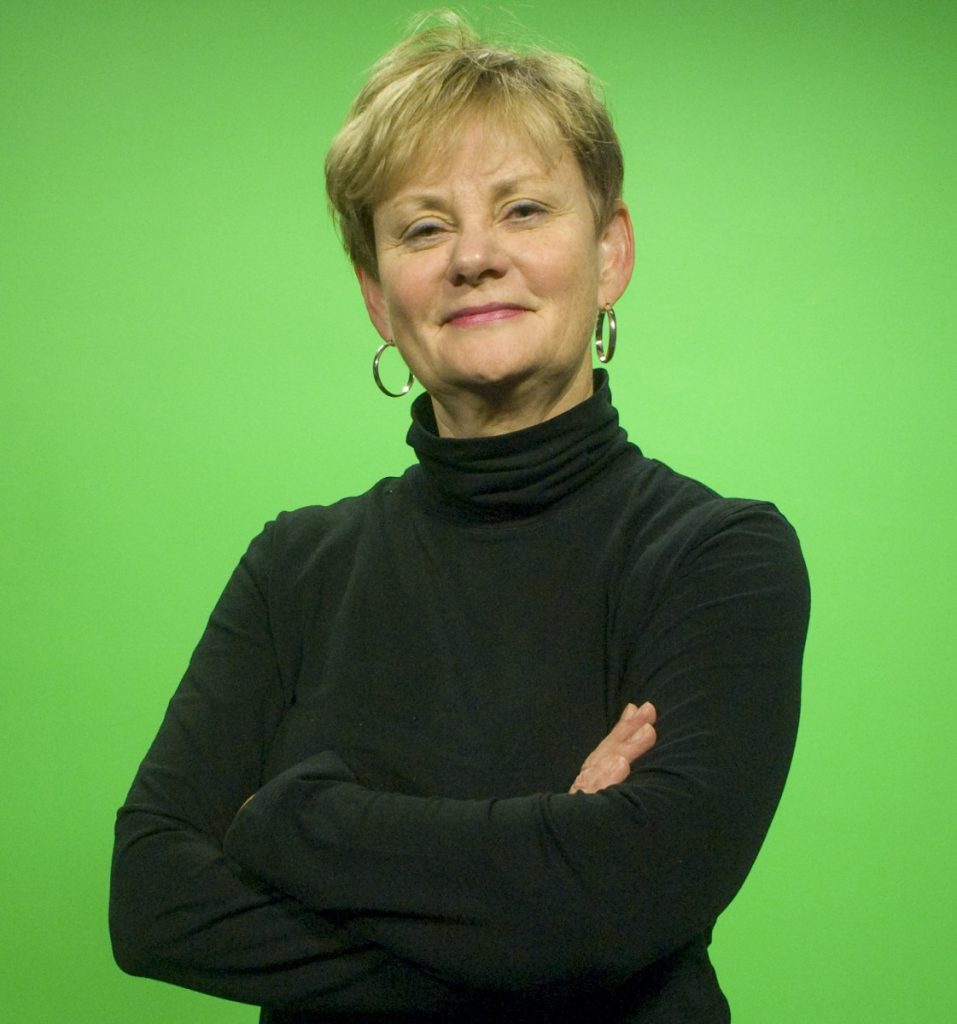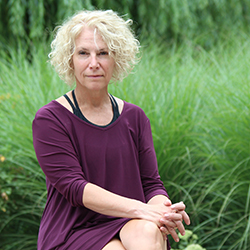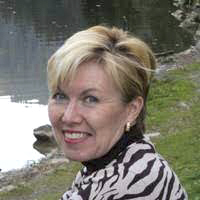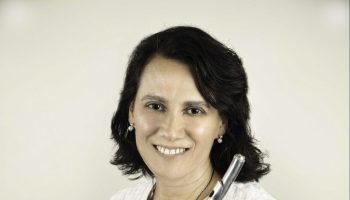DEBORAH TREFTS – STAFF WRITER

There’s Murder in Our Midst, and then there’s Murder in Our Midst. One is book 17 in Bruce Beckham’s fictional British crime mystery series, “Detective Inspector Skelgill Investigates,” published in July. The other, published in January by Oxford University Press and written by Smith and Jones — University of Western Ontario Associate Professor Romayne Smith Fullerton and Duquesne University Professor Maggie Jones Patterson — is a review and evaluation of crime coverage practices in England and nine other developed Western democracies.
At 4:30 p.m. Monday, Aug. 2 on the porch and front lawn of the Chautauqua Women’s Club, Fullerton and Patterson will present the culmination of a decade of research — “Murder in Our Midst: Comparing Crime Coverage Ethics in an Age of Globalized News.” The rain date is Wednesday, same time and place.
Bob Garfield, former host of WNYC Studio’s radio program “On the Media,” interviewed these co-authors for his March 11 podcast extra “To Name, Or Not to Name.”
“On the Media’s” website introduces the issue explored: “It’s been a staple of local, nightly news for decades: While an anchor recites a vivid crime report, sometimes embellished with security footage or street interviews, a name and mugshot flash across the screen. Then, in the paper the next day, a column full of all the details a reporter could obtain on the alleged culprit appears.”
The introduction continues: “Beyond our own hometowns, national news often gives us the names of criminals before they give us anything else — sometimes that’s all they’ve got. But is that right?” As the interview proceeds, it’s clear that there is no simple answer to Garfield’s question. Context, belief systems and cultural differences are key.
“The Associated Press just announced a policy change,” Patterson said last week. “It will no longer publish the names of suspects in minor crimes unless there’s something unusual or funny. The name is not that important. We talked to the (Vice President) of Standards for AP, John Daniszewski. With Google, a lot of people’s names were showing up in searches, by landlords for example. People are accused of crimes they may not even have committed. Allegations alone are enough to ruin your life.”

Consequently, the AP may be willing to scrap their archives, which is a policy that Patterson said The Boston Globe and The Plain Dealer have already adopted.
“It seems as though the tide in North America may be shifting away from the tell-all,” added Fullerton. “I don’t know if it’s really empathic, but … it does seem like a more empathic stance now.”
Few people — journalists included — know that in other Western developed nations, names are not universally used in the press or even in court proceedings.
In fact, not naming is the default in Sweden, the Netherlands and Germany. Thus Fullerton and Patterson have called the “media model” for these countries “The Protectors.”
They have labeled Canada, the U.S., Ireland and England as “The Watchdogs,” because in these countries the default is to name, for reasons primarily related to government transparency.
Since the default for Spain, Portugal and Italy is ambivalent behavior, Fullerton and Patterson have identified them as “The Ambivalents.” Although these countries share Protectionist impulses, according to these scholars they also have tendencies toward the worst of Watchdog behavior.
“They have policies that say one thing — and their practice is something different,” Patterson said.
Murder In Our Midst – by Fullerton and Patterson – is not only spurring policy changes by newspapers and other forms of news media, but also it is improving discussion and debate within and across the fields of criminology, government, journalism, law, philosophy, psychology and sociology.
At the end of the interview with Garfield, Patterson said: “One of the themes of the book was that crime serves as a lens to understand deeper generally held cultural attitudes to aspects of justice. Crime practices that each country and each media model use are reflections of deeper attitudes held by the public and citizens individually.”
She continued: “As citizens and as communities and countries come to revise those attitudes, it makes sense to me that crime coverage practices and journalism generally will change, because those values are changing.”
Fullerton and Patterson have been working together since 2006, when they co-wrote an article about mass murders published in The Journal of Mass Media.
“I know that because I was putting together the materials for tenure review,” said Fullerton, who earned her undergraduate degree in journalism and minored in English at Carleton University in Ottawa, Ontario.
She said that when she graduated she felt too young and inexperienced to work in journalism, so she went to the University of Western Ontario for a master’s in English.
“I was enjoying my graduate work, so I did a Ph.D.,” Fullerton said. “I freelanced to pay the bills. I was working at the grad-pub at the university and the then head of journalism struck up a conversation. He said I was a rare breed with journalism and an English Ph.D. Academic jobs are rare, so this was like opening a door.”
For five years Fullerton served as a “sessional person” — someone who teaches by the course (“adjunct” in the U.S.). She said during some years she taught six or seven courses, including journalism and English, plus courses at University of Western Ontario’s Teachers College, and children’s literature to public school teachers. When Fullerton initially began teaching in Western’s Faculty of Information and Media Studies in 1997, she taught “Ethics in Journalism” and “Women in the Media,” followed by “New Issues in Canada” and “Communications Theory.”
Over the years her research focus has been on “the ethics of reporting on women and marginalized people, with a special emphasis on crime.”
Fast-forward to this summer. Fullerton is currently immersed in her course “Good and Mad: Women, Emotion, Media and the Public Sphere.” Recently, she has also taught “Un(Covering) Canadian Crime,” “Doing Democracy Right or Doing Right by Democracy? Ethics, Critical Theory and the Public Right to Know” and “Information in the Public Sphere.”
“My take-away from my own experience is the advice I was given by a high school teacher,” Fullerton said. “ ‘Keep doing what you like to do, then you’ll end up doing what you want to do.’ That’s good advice. I chose my path based on my enjoyment of what I was doing.”
She continued: “It’s the same with (Patterson). Neither of us have backgrounds in criminology or psychology. Crime is about insights into people.”
A native of Pittsburgh, Patterson said she went to Ohio University because it has a top journalism program. There she earned her bachelor of science in journalism.
“I majored in advertising, and can’t tell you why I wanted to write ad jingles,” she said. “I had an internship at The Pittsburgh Press. It was rare to get a journalism job in Pittsburgh, but I got a permanent job there. There was a (section) for women — the Women’s Pages. The (employment) letter said it was for a job at the City Desk. Then I was told, ‘No, you’re at the Women’s Desk because we don’t want women working at night.’ ”
When she explained that as an intern she had covered nights and that there were women cleaning then, she said she was taken as a smart aleck. So Patterson freelanced.
“I took a job at the University of Pittsburgh,” she said. “They hired real journalists to write the copy. I got all the tough stories because I was a journalist, including the faculty’s attempt to unionize.”
Courses for Pitt employees were tuition-free, and when the English department started a creative writing course, Patterson enrolled.
“I realized that I was better than most of the other students,” she said. “So like (Fullerton), I just fell into it. A (master of fine arts in English and writing) is considered a terminal degree.”
At Duquesne University in Pittsburgh, Patterson has been teaching investigative reporting, media ethics and writing, feature writing, literary journalism, and “Sex, Myth and Media” about gender in media.
She has co-authored three books in addition to Murder in Our Midst. In January, her article “How Much Do We Need to Know about Domestic Terrorists” was published in Columbia Journalism Review.
Patterson serves as the chair of Duquesne’s Student Publications Board, the president of the Pittsburgh Society of Professional Journalists, and a member of the board of directors of PublicSource, a web-based not-for-profit news service for greater Pittsburgh.
“I got interested in crime because I had always felt guilty for reading crime stories,” Patterson said. “Then a friend, Jack Katz, said they provide society’s ‘daily moral workout’ for how they reflect the culture reflecting on itself.”
For Fullerton and Patterson, it’s important that Chautauquans realize that “as immigration, new technologies, and globalization reshape the world, journalism often shapes public adjustment to moral and material upheaval. Ethical stakes for journalism are raised as the ways reporters tell stories can spread discontent or encourage adaptation.”
In interviewing 200 journalists and comparing crime coverage in 10 countries, they examined various ways in which journalism can shape democratic practice. They have concluded that to operate in the public interest, as journalists talk about doing, the public has to see the public interest reflected in their work.
“I would like everybody to give serious thought to whether the crime coverage practices in your community, state and country align with your values,” Fullerton said. “If you feel they’re out of line, respond. We need a press that responds to citizen concerns. I feel the AP is doing so in a way that press generally do not.”




